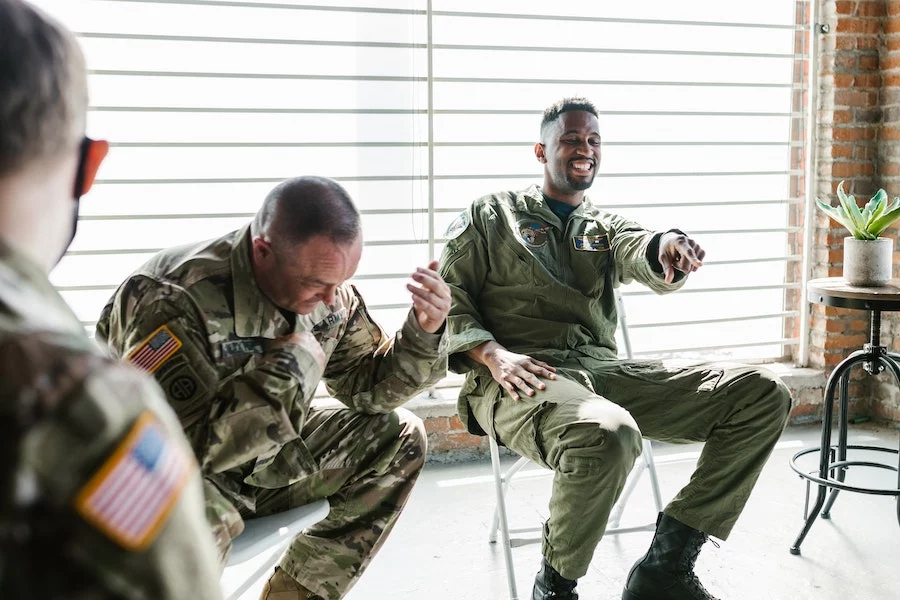Is A Veteran’s Surviving Spouse Eligible For Benefits?
Share
It’s not always clear whether a surviving spouse is eligible for the Veterans’ Dependency and Indemnity Compensation. But it all comes down to who died first. VA benefits are designed to assist family members who rely on military service members as their primary income source to ensure they have a stable household income after the service member’s death. To qualify for benefits, the surviving spouse must have been married to the service member at the time of death. If a widow or widower remarried within two years of their deceased spouse’s death, they are not eligible for survivors’ benefits. If a marriage lasted longer than two years, the surviving service member and their partner could choose to split their payments and either claim half or receive a lump sum payment.
This situation is prevalent in cases where a surviving service member has died while on active duty. In these cases, the remarried spouse can apply for VA benefits as long as they were married at the time of their partner’s death. If a spouse remarries while receiving disability benefits, it will delay the benefit’s start date.
What are Veterans Benefits?
Veterans’ benefits are paid to those with a service-connected disability or illness. In addition to compensation, veterans may be eligible for health care coverage, education and job training services, and burial allowances. The term “veteran” encompasses anyone who served in the United States military. Some veterans have served on active duty, while others have been activated as reservists or members of the National Guard. Veterans are often awarded benefits based on their service record and how many years they were able to serve before being discharged or retiring. Eligible veterans may receive a monthly check from the Department of Veterans Affairs (VA). Some veterans’ benefits can be paid until the veteran’s death.
What Are Health Benefits Available For Veterans?
Veterans’ health benefits include medical care and prescription drugs through the VA. Veterans who served in active duty service may be eligible for five years’ worth of VA medical services when they are discharged. Veterans who were activated as reservists or members of the National Guard may also be eligible for VA medical services if they served at least 90 days and were discharged under conditions other than dishonourable. Veterans who received an honourable or general discharge are eligible for up to eight years of free VA medical care.
Veterans eligible for VA medical benefits can use the VA to fill their prescriptions and receive medical treatment. The VA also maintains its hospitals and clinics, which provide high-quality medical care to veterans at low or no cost. Veterans who were activated as reservists or members of the National Guard will receive priority service from the VA.
Is A Veteran’s Surviving Spouse Eligible For Benefits?
It’s not always clear whether a surviving spouse is eligible for the Veterans’ Dependency and Indemnity Compensation. But it all comes down to who died first. VA benefits are designed to assist family members who rely on military service members as their primary income source to ensure they have a stable household income after the service member’s death. To qualify for benefits, the surviving spouse must have been married to the service member at the time of death. If a widow or widower remarried within two years of their deceased spouse’s death, they are not eligible for survivors’ benefits. If a marriage lasted longer than two years, the surviving service member and their partner could choose to split their payments and either claim half or receive a lump sum payment.
This situation is pervasive in cases where a surviving service member has died while on active duty. In these cases, the remarried spouse can apply for VA benefits as long as they were married at the time of their partner’s death. If a spouse remarries while receiving disability benefits, it will delay the benefit’s start date.
What Is Dependency And Indemnity Compensation?
The Veterans’ Dependency and Indemnity Compensation is paid to surviving spouses, widows, and widowers, who are the primary source of income for a surviving family member. The benefit is designed to provide additional financial support for veterans, their children, and other dependents to help them maintain a stable household income after a service member’s death. To be eligible for benefits, the surviving spouse must have been married to the service member at the time of death. If a widow or widower remarried within two years of their deceased spouse’s death, they are not eligible for survivors’ benefits. If a marriage lasted longer than two years, the surviving service member and their partner could choose to split their payments and either claim half or receive a lump sum payment.
Conclusion:
Veteran’s benefits are paid to those with a service-connected disability or illness. In addition to compensation, veterans may be eligible for health care coverage, education and job training services, and burial allowances. The term “veteran” encompasses anyone who served in the United States military. Some veterans have served on active duty, while others have been activated as reservists or members of the National Guard. Veterans are often awarded benefits based on their service record and how many years they were able to serve before being discharged or retiring.

















